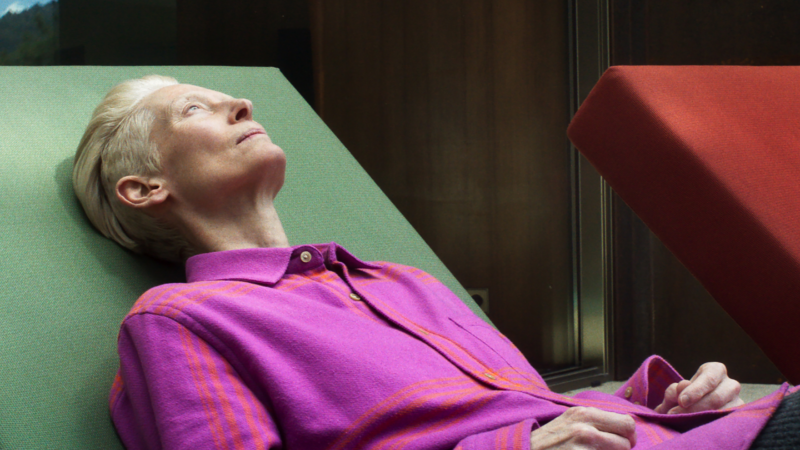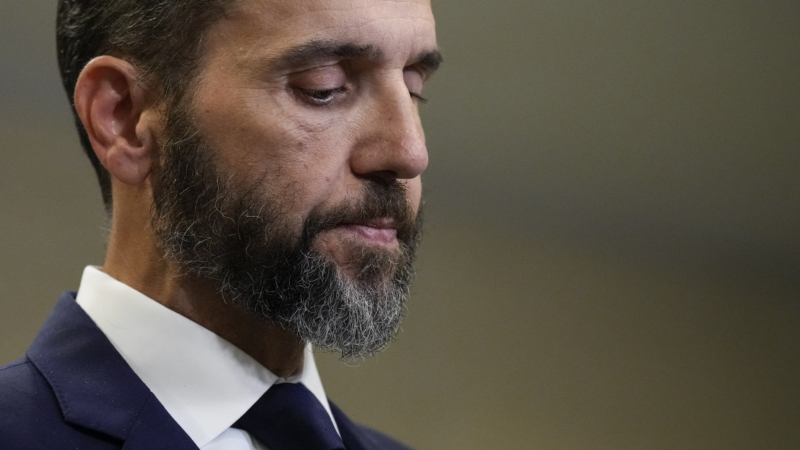Dizzy after one drink? Social drinkers on obesity drugs lose the taste for alcohol
Many social drinkers who take obesity medications, such as Wegovy or Mounjaro, say they don’t enjoy alcohol as much.
A new study of Weight Watchers members who take obesity drugs — and were in the habit of drinking — finds about half of them cut back after they started the medication.
“I feel amazing,” says Tamara Hall, 45, a mother of three. She began taking the GLP-1 drug Mounjaro in 2023 as part of a Weight Watchers program.
The medicine is covered by her insurance. At the time she had elevated blood sugar and her weight put her in the category of having obesity. She’s now lost more than 100 pounds, and though she was never a daily drinker, she consumes much less.
“This is the best I have felt in my entire adult life,” Hall says. Her A1C (which is a blood test that measures blood sugar over a three-month period) is now in the healthy range. “It’s life changing,” she says.
Hall was a moderate drinker who enjoyed wine or a cocktail at social gatherings. “A margarita or mixed drink, that was my go to,” she says. But once she started the medication, her appetite for alcohol changed.
She noticed feeling full and dizzy after one drink, whereas before she felt she tolerated alcohol much better. “The impact of the alcohol was more intense,” she says, and so cutting back was easy. “I didn’t know it would have the impact of me not wanting the alcohol — so I think it’s a huge benefit.” She says the medication seems to cancel out the cravings.
Hall’s experience fits with the results of the new study published in the journal JAMA Network Open. The study included survey data from about 14,000 Weight Watchers members, mostly women, all of whom were taking medication including Wegovy and Mounjaro. Some were taking older medications such as metformin.
“The main finding is that approximately 50% of patients who consumed alcohol at baseline reported decreased alcohol use after initiating their anti-obesity medication, says study author Lisa Matero, a health psychologist and researcher at Henry Ford Health.
Those who had the highest levels of drinking were about 19 times more likely to cut back compared to those who were categorized as light drinkers. “Those who lost more weight were also more likely to decrease their drinking,” Matero says.
The reductions in alcohol use held up among people taking the new generation obesity medications and older drugs, including metformin, which is typically prescribed for diabetes. “I think what surprised me was that there was a reduction of alcohol use across all different types of anti-obesity medications,” Matero says.
“Maybe being enrolled in a weight management program encourages healthy behavior change,” she says. This could be part of the explanation of the study findings.
A growing body of evidence on GLP-1 drugs points to significant effects on behaviors.
During some of the landmark clinical trials of GLP-1 drugs that demonstrated reductions in body weight, researchers heard anecdotal reports from participants about changes in habits.
“They would tell us that they would drink less or even shop less,” says Dr. Robert Kushner of Northwestern University, a GLP-1 researcher who is also a consultant to drug makers. People also reported less ‘food noise’ he says. Their “thinking of food diminished and the reward of food was diminished,” Kushner says.
GLP-1 – which stands for glucagon-like peptide 1 – drugs increase the amount of insulin that the pancreas produces and boost the ability of the pancreas to release insulin. But the drugs also influence the brain’s reward system. “The drugs circulate throughout the body, including the brain, to reduce appetite,” Kushner says.
So, Kushner says he’s not surprised by the results of this study pointing to less alcohol consumption. ” I think this is an extension of this reward based biology that we see that these drugs are affecting,” he says.
There’s a lot more to learn about these drugs, says Dr. Lorenzo Leggio, clinical director at the National Institute on Drug Abuse. “We are very excited about the possibility that these drugs may be effective for alcohol addiction and other addictions,” Leggio says. But he says the evidence is preliminary, so it’s too soon to draw any conclusions.
There are randomized controlled trials underway – which are considered the gold standard in medical research. While the research is ongoing, Leggio points to medications such as naltrexone, that the FDA has already approved to treat alcohol use disorder.
The new study comes at a time of increased focus on wellness and prevention, and there’s a growing cultural awareness that limiting alcohol can help achieve that goal.
“Most people that we talked to get on these medications because they’re overall trying to get healthier, and reducing alcohol consumption can also be part of that journey,” says Michelle Cardel, the chief nutrition officer at Weight Watchers.
This new study helps to better disentangle how obesity medications can help influence that journey.
Edited by Jane Greenhalgh
A record 24 million people now get Obamacare health plans. Will it last under Trump?
Enrollment in Affordable Care Act health insurance plans has grown every year of the Biden administration, leading to a record high rate of people with insurance.
Tilda Swinton thinks about death and says you should, too
Swinton plays a woman dying of cancer in Pedro Almodóvar's The Room Next Door. "A life spent considering how we're going to spend our end is not wasted time," Swinton says.
Girl Scouts are retiring two cookie flavors (don’t worry, your Thin Mints are safe)
2025 will be the last time you can buy Girl Scout S'mores and Toast-Yay! cookies. They join the ranks of many other discontinued flavors — RIP Mango Cremes with Nutrifusion and cheesy Golden Yangles.
Here’s where things stand for several major landmarks in the Los Angeles fires
The fires raging across Los Angeles are putting some cultural institutions in danger.
Justice Department wants to release only part of its report on Trump cases
Prosecutors dropped the two criminal cases against Trump after he won the 2024 election, and the final report by Smith may be the last chance for prosecutors to explain their decisions.
Trump asks the Supreme Court to block his sentencing in hush money case
President-elect Donald Trump is scheduled to be sentenced on Jan. 10 in New York. His latest legal move to block sentencing comes after a New York appeals court rejected a similar appeal Tuesday.





